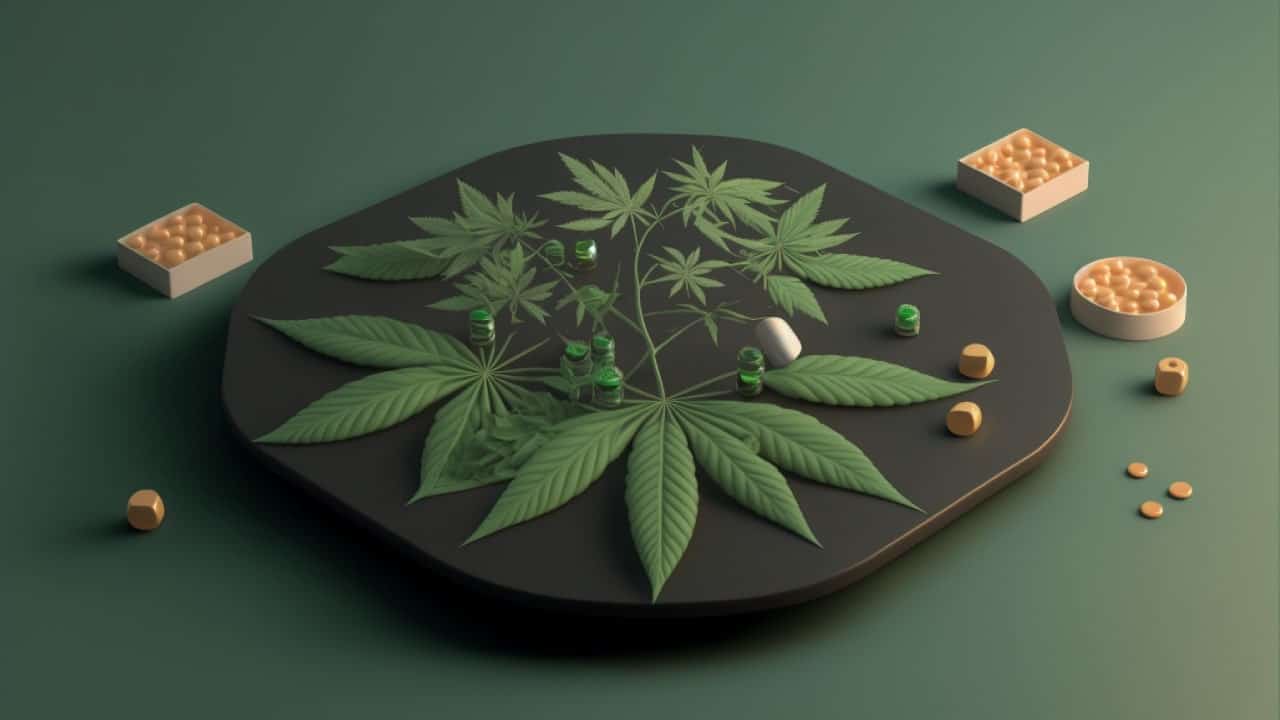Weed and Antibiotics: What You Need to Know
As cannabis becomes increasingly legalized and accepted for both medicinal and recreational use, it is important to understand its potential interactions with other substances we commonly use. Antibiotics, which are widely used to treat bacterial infections, are no exception.
While some studies have suggested that cannabis may enhance the effectiveness of certain antibiotics, others have shown that the combination can reduce the efficacy of these drugs.
Let’s examine the interactions between weed and antibiotics, and discuss what you should know before considering using them together. From possible side effects to safe use tips, this post aims to provide a comprehensive guide to understanding the relationship between weed and antibiotics.
How Do Weed And Antibiotics Interact?
Antibiotics can have a significant impact on the gut microbiome, which is the population of microorganisms that live in the digestive tract. These microorganisms play an important role in maintaining overall health and well-being.
The use of antibiotics can disrupt the balance of the microbiome and reduce the effectiveness of weed. This is because weed works by interacting with the endocannabinoid system, which is closely tied to gut health.
Certain antibiotics, such as rifampin and ciprofloxacin, can negatively interact with weed. These antibiotics can increase the metabolism of THC, the psychoactive component of weed, which can lead to reduced efficacy and increased side effects.
Additionally, some antibiotics, such as tetracyclines, can cause photosensitivity, which can make the skin more sensitive to sunlight and increase the risk of sunburn.
On the other hand, some studies suggest that weed can counteract the effectiveness of antibiotics. This is because weed may inhibit the ability of antibiotics to reach and kill bacteria, making the antibiotics less effective.
Risks Of Combining Weed And Antibiotics
Based on limited data, it appears that antibiotics are likely to remain effective despite the potential for interactions with cannabis. However, it is important to note that different drugs utilize various metabolic pathways in the liver, and the metabolic pathway used by cannabinoids is also used by several prescription drugs, including some antibiotics.
While the potential interactions between cannabis and other medications are currently thought to be non-life threatening, it is essential to understand that the impact of cannabis on the body and its interactions with other pharmaceuticals have not yet been thoroughly studied.
Furthermore, it should be acknowledged that the use of cannabis alone also poses certain risks, including short-term adverse effects such as dizziness, fatigue, dry mouth, and cognitive impairment. The long-term effects of cannabinoids are yet to be fully understood.
Substitutes Of Weed While Taking Antibiotics
If you are taking antibiotics, it is important to avoid the use of any substances that may interact with your medication or compromise its effectiveness, including marijuana, as it can interfere with the way antibiotics work.
If you’re looking for alternatives to cannabis that help alleviate symptoms or provide a sense of relaxation, there are a few options you could consider:
- Exercise: Physical activity can help boost your mood, relieve stress, and promote overall well-being. Going for a walk, jog, or bike ride, or even doing some light stretching at home can be a great way to take your mind off things and help you feel better.
- Meditation or Yoga: Practicing mindfulness techniques such as meditation or yoga can help you focus on the present moment and let go of stress and anxiety.
- Herbs infusions: Some herbs like Kava, Valerian, Lemon Balm, and Passionflower are traditionally used for anxiety, insomnia, and stress relief.
- Aromatherapy: Essential oils like lavender and chamomile can help promote relaxation and reduce stress and anxiety.
- Acupuncture: Acupuncture is a traditional Chinese medicine technique that involves inserting thin needles into specific points on the body to relieve pain and promote healing.
- Therapy: Talking with a therapist or counselor can help you work through any emotional or psychological issues you may be experiencing, and can provide you with support and guidance to help you manage symptoms.
How To Safely Use Weed And Antibiotics Together
To safely use weed and antibiotics together, it’s important to consult with a healthcare professional before combining the two. They can advise on the best course of treatment, as well as any potential interactions or side effects.
Alternative options for treating bacterial infections without antibiotics include using natural remedies, such as probiotics and herbal supplements, which can help to support the gut microbiome and boost the immune system.
Conclusion:
It’s critical to comprehend how these two drugs interact and how to take them safely together because the interaction between antibiotics and cannabis is complex.
Before mixing the two, seek advice from a medical practitioner. Pay attention to the dosage and timing of each drug. Natural treatments are an alternative to drugs for treating bacterial illnesses.
